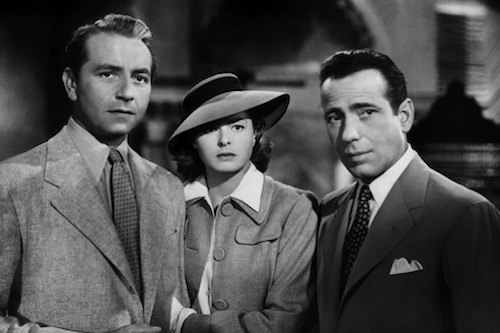
Here's a cinematic treat in time for the festive season. 1942's peerless Casablanca is being re-released at Cineworld nationwide this December to celebrate its 80th anniversary.
Yes, this oft-quoted and timeless gem really is 80 years old. Casablanca has permeated the popular consciousness like few other movies from Hollywood's Golden Age. The film's quotes, performances and set pieces are all justifiably famous, spinning an unrequited love story around the (then contemporary) spectre of World War II.
Newcomer to Casablanca? Seen it dozens of times before? This one's for all of you. Here are five very good reasons why you can't miss the movie at Cineworld.
1. It tells one of the greatest love stories in film history
Casablanca is the story of two lovers separated by the ongoing trauma of the Second World War. Rick and Ilsa enjoyed a deep-seated romance in Paris but the emergence of the conflict forced them to go their separate ways.
Years later, Rick runs his own bar in Vichy-occupied Casablanca. Rick's place is a den of iniquity and is attended by all manner of seedy individuals. Rick has developed an amoral attitude and despite the pressures of the ongoing war, expresses loyalty to no one. Until, of all the gin joints in all the world, Ilsa happens to walk back into his, accompanied by her new partner: resistance fighter Victor Laszlo.
The chemistry between the leads Humphrey Bogart and Ingrid Bergman is, of course, unparalleled. Equally impressive is the script's ability to keep all of the balls juggling in the air (the credited writers are Julius J. Epstein Philip G. Epstein and Howard Koch). Casablanca is, at once, an intimate story of romance thwarted (aided by a then-striking use of flashbacks) and also a wide-ranging political drama about one man learning to re-engage and do the right thing.
The way the personal and the political ultimately dovetail, compelling characters to make the most difficult of decisions for the greater good, cements Casablanca as one of the greatest films of all time.
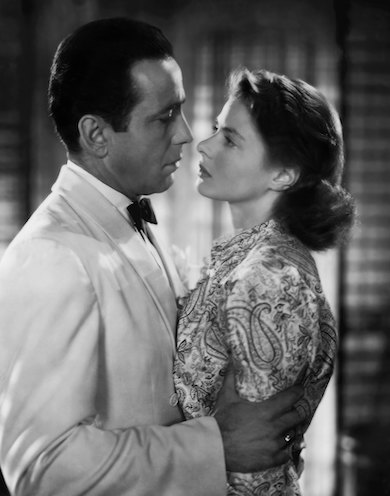
2. Humphrey Bogart's performance is iconic...
Few could embody the craggy and the taciturn quite like Bogey. By the time Casablanca was released, Bogart had established a reputation for taciturn, hard-nosed individuals via his portrayal of private eye Philip Marlowe in The Maltese Falcon (1941).
Bogart perfected the technique in Casablanca, walking the tightrope between sympathy and contempt as his character Rick experiences divided loyalties. The actor's relatively understated portrayal (at least by the standards of many outsized Golden Age performances) helps keep Rick's emotions somewhat contained and unreadable.
Right up until the end, we're unsure as to the future that lies in store for himself and Ilsa. (This was aided by frequent script rewrites that kept the actors guessing as to the final movement.) Bogart's ability to convey sensitivity and toughness was unrivalled by many of his peers, making him singularly perfect to bring Rick to life: a one-time romantic who has been hardened by conflict, and who must learn to thaw out again.
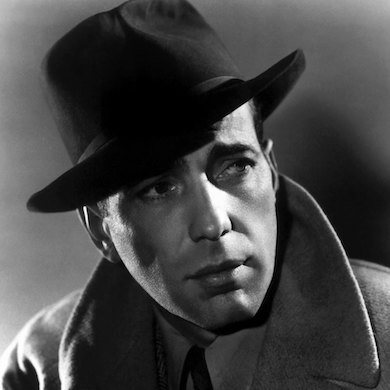
3. ... As is the supporting cast
Casablanca boasts one of the greatest ensembles of any classic Hollywood movie, if not the greatest. Paul Henreid plays Ilsa's new beau Victor while Claude Rains (The Invisible Man) plays the sharp-witted Captain Louis Renault.
There's a rogue's gallery of classic character actors waiting in the wings, indicative of director Michael Curtiz's sharp eye for memorable faces. Silent cinema legend Conrad Veidt portrays Major Heinrich Strasser, The Maltese Falcon's Sydney Greenstreet portrays Signor Ferrari and Peter Lorre, star of Fritz Lang's early groundbreaking serial killer movie M, plays the toad-like Signor Ugarte.
Each of these well-cast names possesses the kind of singular, piercing features so beloved by the camera. The casting helps add a rich and complex texture to Casablanca, ensuring that the backdrop to the central romance is also engrossing and unpredictable.
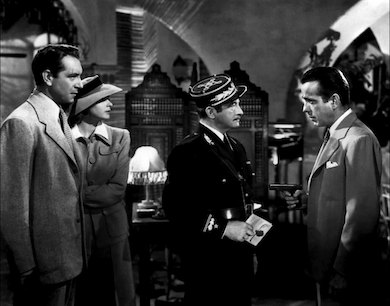
4. The scenes and lines have passed into history
Honestly, there are too many scenes and quotes for us to list here. Any other movie would be happy to possess just one of Casablanca's iconic vignettes, but for sheer longevity and pop culture impact, we'll cite the appearance of Dooley Wilson's Sam, Rick's in-house pianist who is compelled to "play it again" (the very same phrase would inspire the title of a 1972 movie by Woody Allen).
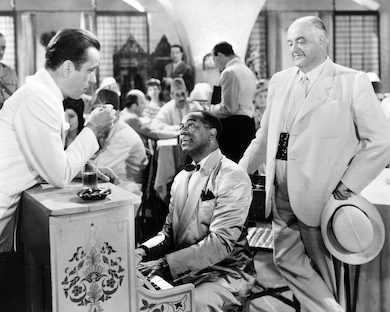
The ensuing composition played by Sam, 'As Time Goes By', encapsulates the wounded, melancholic nature of Rick's heart, throwing him back into Nazi-occupied Paris. Despite Rick's surly attitude, the song is more indicative of his nature than Rick would have anyone believe.
The song "As Time Goes By" by Herman Hupfeld had been part of the story from the original play of Casablanca. Renowned composer Max Steiner (King Kong; Gone With the Wind) then based the entirety of his score around the melody.
Here's the unforgettable scene again in all of its glory.
5. It contains (arguably) the greatest send-off ever
We have to be careful here – after all, some of you reading this may be coming to Casablanca for the very first time. However, we will say that few movie climaxes radiate with as much wisdom and sagacity. There is a profound sense of sacrifice in the face of great hardship, and the movie resists sliding into easy schmaltz.
Of course, it's aided by all aspects of the production, from the sensitive performances (assisted by the glow of the monochrome cinematography) to the deft direction from Michael Curtiz. There's a reason why the movie is so revered to this day, and it's largely encapsulated by this ending.
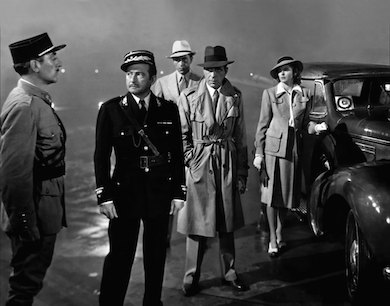
Click here to book your tickets for Casablanca, on release at Cineworld from December 2nd. What is your favourite scene from this Hollywood masterpiece? Let us know @Cineworld.

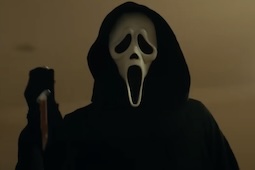

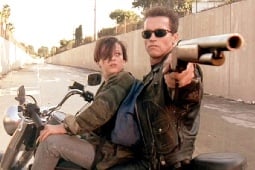
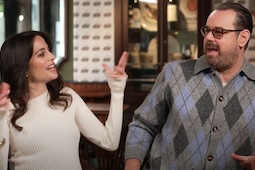
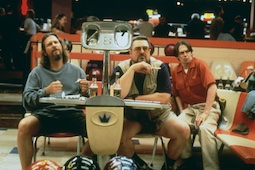
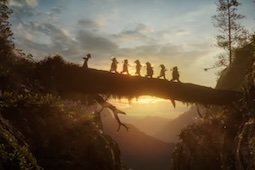
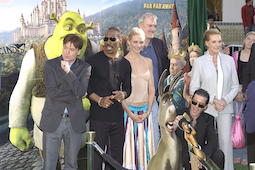
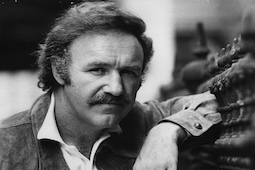
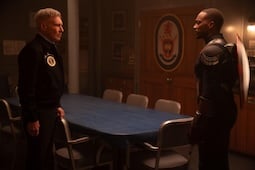



.jpg)
.png)





